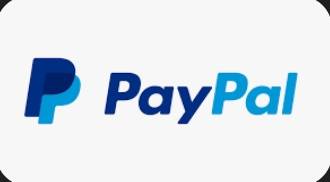_PayPal's Absence in Ghana: Understanding the Reasons_
PayPal, one of the world's leading online payment platforms, is notably absent in Ghana. Despite its global reach, PayPal's services remain inaccessible to Ghanaians, hindering online transactions and economic opportunities.
_Key Reasons_
1. _Regulatory Framework_: Ghana's financial regulations and laws governing online payments are not aligned with PayPal's requirements. The country's lack of clear guidelines on electronic payments and money laundering creates uncertainty.
2. _Anti-Money Laundering (AML) and Know-Your-Customer (KYC) Concerns_: PayPal prioritizes AML and KYC compliance. Ghana's financial institutions' limited capacity to implement robust AML/KYC measures raises concerns.
3. _Limited Banking Infrastructure_: Ghana's banking sector faces challenges in integrating with international payment systems. Insufficient technology and infrastructure hinder seamless transactions.
4. _High-Risk Country Classification_: Ghana is classified as a high-risk country due to its vulnerability to fraud, scams, and cybercrime. PayPal's risk management policies dictate caution.
5. _Lack of International Cooperation_: Ghana's limited international cooperation and information sharing on financial crimes and terrorism financing exacerbates PayPal's concerns.
_Consequences for Ghanaians_
1. _Limited Online Shopping_: Ghanaians face difficulties purchasing from international online retailers.
2. _Restricted Freelance Opportunities_: Freelancers struggle to receive payments from global clients.
3. _Economic Growth Constraints_: PayPal's absence hinders Ghana's integration into the global digital economy.
_Alternatives and Solutions_
1. _Local Payment Platforms_: Ghanaian companies like Slydepay and ExpressPay offer alternative payment solutions.
2. _Mobile Money Services_: Telecommunications companies provide mobile money services.
3. _Government Initiatives_: Efforts to improve financial regulations and infrastructure are underway.
_Conclusion_
PayPal's absence in Ghana stems from a complex interplay of regulatory, infrastructural, and risk-related factors. Addressing these challenges requires collaborative efforts from the government, financial institutions, and international organizations. Until then, Ghanaians will rely on alternative payment solutions.
_Sources:_
- PayPal's Official Website
- Ghana's Ministry of Finance
- International Monetary Fund (IMF)
Would you like:
1. More information on alternative payment platforms in Ghana?
2. Insights on Ghana's financial regulatory framework?
3. Updates on government initiatives to improve financial infrastructure?




Gershon
Nov 15, 2024Good